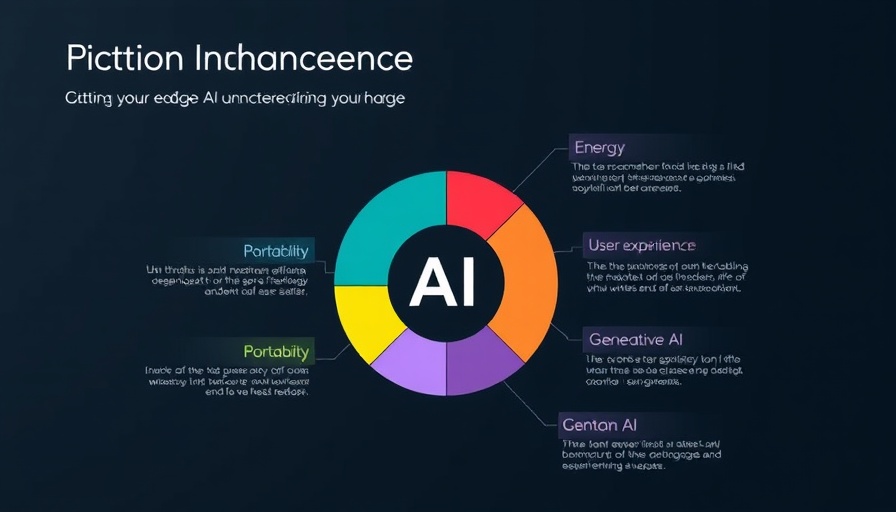
Envisioning the Future: How Personal Computing Will Transform in 2025
As we approach 2025, personal computing is on the brink of a revolutionary transformation that promises to redefine how we interact with technology. From traditional PCs to personal access points influenced by cutting-edge artificial intelligence (AI) and quantum computing, the evolution is not just about hardware; it's about a shift in our entire digital ecosystem.
The Shift Away from Traditional PCs
For decades, personal computers have served as essential tools for work and communication. However, sources indicate that the conventional PC may soon become a relic of the past. As AI continues to develop, computing power will increasingly be sourced from cloud services instead of individual desktops. This change means users won’t need powerful local hardware for demanding tasks; rather, they can rely on AI-driven cloud platforms to provide necessary computational strength.
As early as 2025, predictions suggest that users will transition toward 'Personal Access Points.' These lightweight devices will allow seamless interaction with cloud-based applications and AI without needing internal storage or processing capabilities.
Why the PC Refresh is Essential
With Microsoft announcing the end of support for Windows 10 in late 2025, businesses are expected to undergo a significant refresh of their PC inventories. The rush to upgrade offers a unique opportunity for organizations to adopt more efficient, AI-enabled systems that drive productivity, even amid rising competition from mobile devices.
This trend is evident as AI-enabled PCs are projected to account for 44% of notebook shipments by 2025. While this might raise the average selling price of computers, it doesn’t necessarily expand the total accessible market. Businesses that act now will find themselves ready for the next era of computing.
Quantum Computing — A Game Changer
As we enter 2025, quantum computing is set to become a household term. This advancement will lead to dramatic improvements in processing speeds, making existing computers feel significantly slower in comparison. By harnessing qubits instead of traditional binary bits, quantum computers will facilitate complex calculations in mere seconds, fundamentally changing industries reliant on large data sets, such as e-commerce and digital marketing.
For marketers, this means not only more precise data analysis but also faster decision-making processes that could transform campaign strategies and consumer engagement approaches in real-time.
The Role of AI in Our Workspaces
Imagine walking into your office, where your AI assistant has already prepared a customized digital workspace tailored to your needs. No longer will users be tethered to a bulky computer; instead, they can engage with their workflow through lightweight devices that adapt to their preferences and learn over time.
AI-driven automation will enhance productivity, allowing businesses to focus on strategy and creative problem-solving, rather than mundane tasks. Additionally, the introduction of neural interfaces suggests a future where even physical input devices may become unnecessary.
Addressing Privacy and Security Challenges
However, the exciting developments surrounding AI and quantum computing do raise ethical dilemmas. How will organizations protect personal data, and what measures will be necessary for cybersecurity? As conventional encryption methods become insufficient with the rise of quantum attacks, businesses must invest in quantum-resistant solutions and AI security that can adjust in real-time to emerging threats.
While these advancements promise security improvements, they also necessitate a cultural shift in how we think about data privacy. Organizations must prioritize transparency and ethical AI governance as they navigate this landscape.
Preparing for the Future of Digital Marketing
As the digital marketing landscape evolves alongside these technological shifts, professionals and businesses must stay ahead. From SEO updates to content marketing strategies, leveraging these advancements will be crucial for achieving a competitive edge.
Dive into critical areas such as AI in digital marketing, where data-driven marketing strategies can harness AI's power to personalize customer interactions and integrate seamless automation tools, ensuring customer engagement remains a top priority.
What This Means for Business Owners
The transition to cloud-based solutions and AI-powered access points is inevitable. Business owners must start considering how these changes could optimize their operations and whether their current strategies align with emerging technologies. Investing in education for staff regarding AI tools and digital marketing techniques will enhance workplace capabilities and drive growth.
Conclusion: Ready to Embrace Change?
As we look forward to 2025, it’s clear that the personal computing landscape is evolving rapidly. To ensure relevance in these changing times, businesses must embrace digital transformation wholeheartedly. Engage with technology and explore your options for adopting these innovative solutions, ensuring you are well-positioned to capture the opportunities that arise from this exciting new era.
 Add Row
Add Row  Add
Add 




Write A Comment